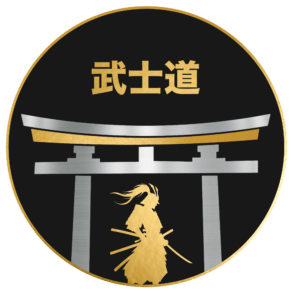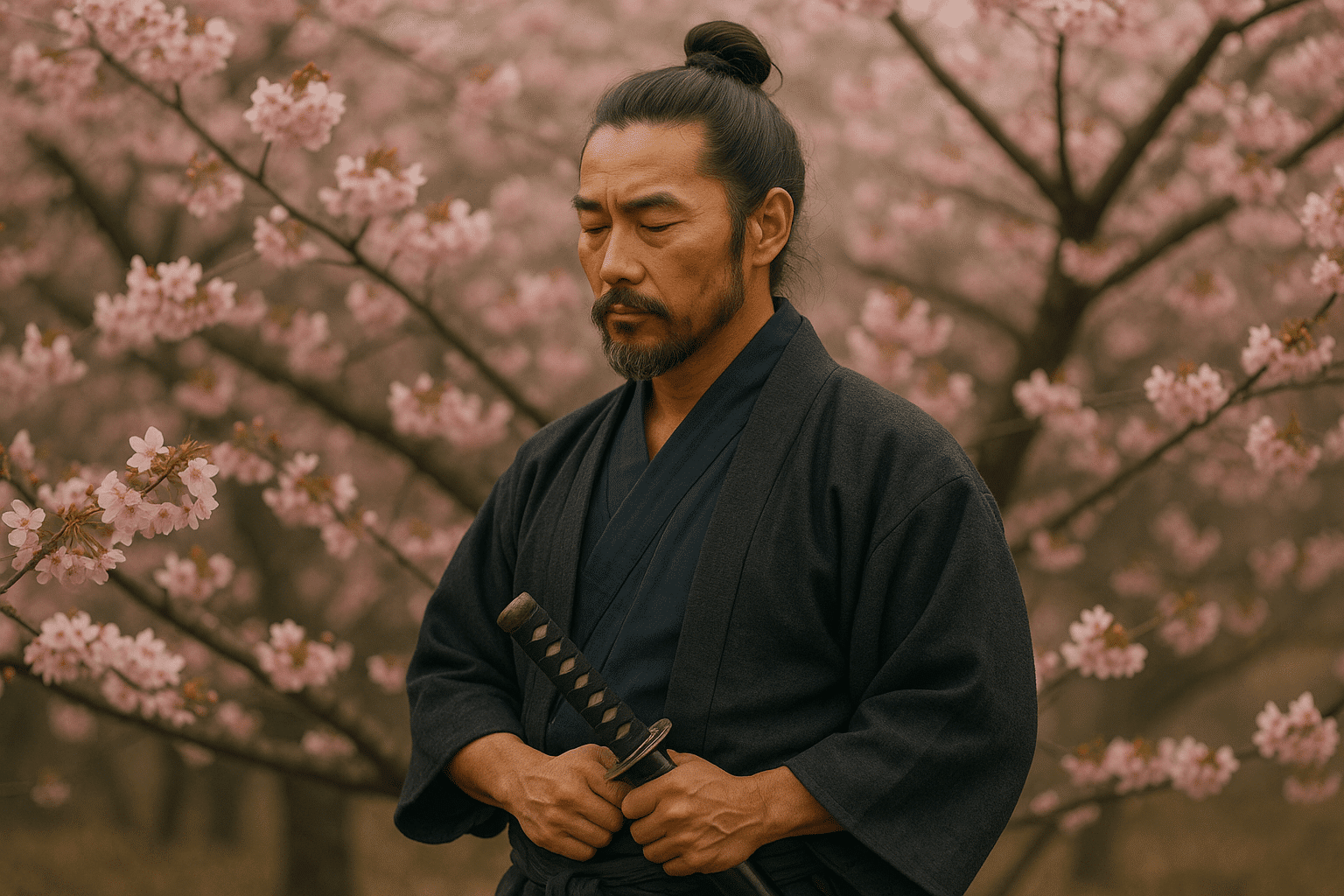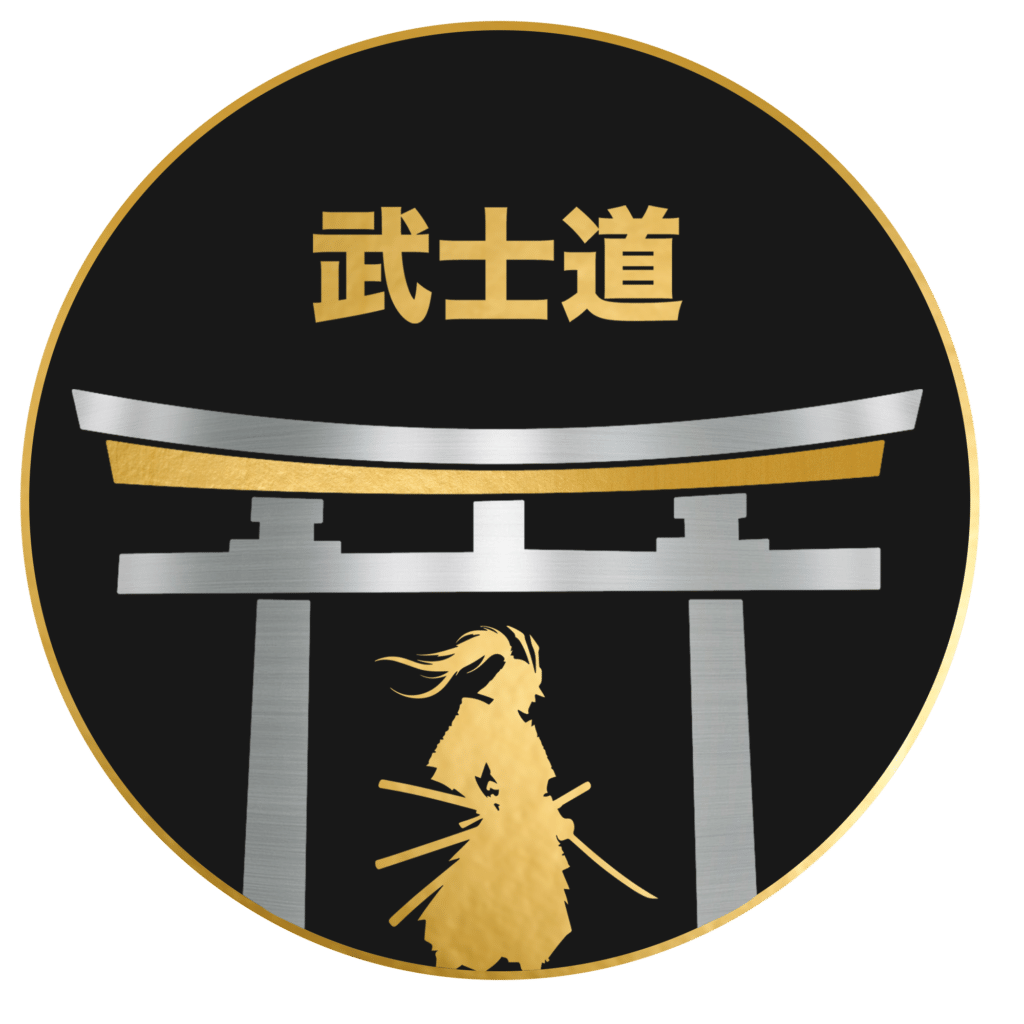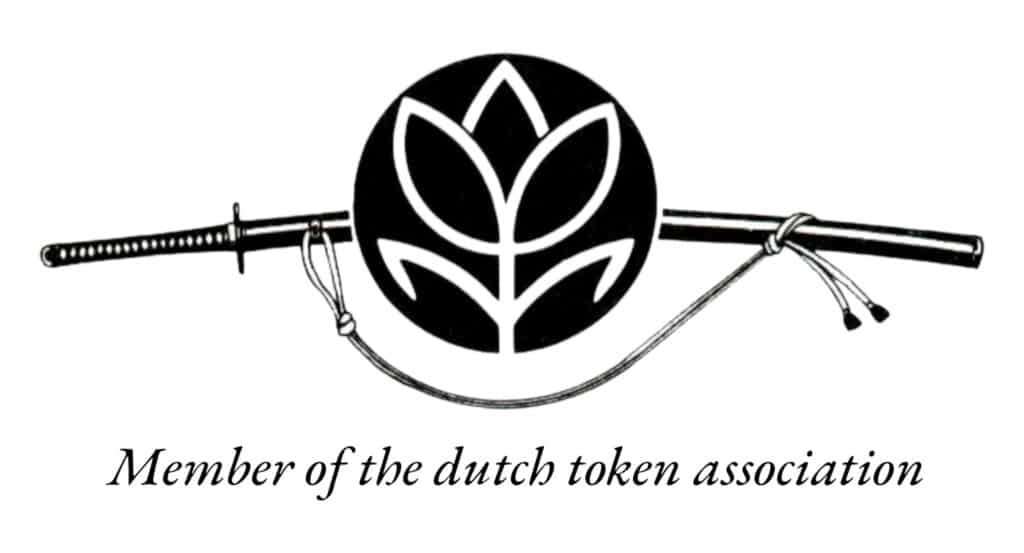Introduction: Walking the Way of the Warrior
In a world of distractions, the way of the warrior offers a return to focus.
Bushidō—“the way of the warrior”—is more than an ancient samurai code. It is a discipline of the mind and the heart. Rooted in honor, integrity, courage, and self-mastery, it speaks across centuries to those seeking strength without aggression, clarity without noise.
This path is not only for warriors. It is for anyone wishing to live with purpose. In everyday choices. In small acts of resolve. In silence, where character forms.
Walking this way does not mean looking back. It means standing still, breathing deep, and choosing your next step with intention.
Here begins the way.
Rectitude (Gi): The Backbone of Personal Integrity
Rectitude, or Gi, is doing what is right without hesitation. It is the discipline to act with moral clarity, even when it costs us. A warrior does not drift with convenience or excuse. He stands firm in what he knows to be just.
This principle demands clear judgment. Not clouded by impulse. Not swayed by gain. Rectitude asks us to listen to our conscience, and to trust its quiet command.
In daily life, rectitude reveals itself in small, consistent choices. Being honest when it’s easier to lie. Keeping promises even when forgotten by others. Holding high standards when no one sees.
It is not enough to know what is right. Rectitude means living it. Steadily. Relentlessly. With humility.
This is the heart of integrity. A person living with Gi becomes unshakable. Centered. Respected. Not for appearance, but for action.
Where Gi is present, honor follows. Where it is absent, nothing else holds.
Courage (Yū): Strength under Control
Courage (Yū) is not loud. It does not seek attention. It moves with quiet resolve.
True courage is the strength to act when fear is present. Not the absence of fear, but the choice to move forward anyway. It is stepping into difficulty with your eyes open.
This kind of courage is measured, not reckless. It weighs the stakes. It holds discipline close. To act without thought is not courage—it is impulse. Courage listens, reflects, and then responds.
In the dojo, students face themselves. They learn to carry fear without being ruled by it. Every controlled movement, every breath, is an act of courage. No grand gestures. Just steady focus.
Yū means doing what’s right, even when it’s hard. Especially when it’s hard. Choosing honor over ease. Action over avoidance.
This strength lives within quiet decisions. Within the will to continue. A warrior does not chase danger—they meet it when it comes, and hold their ground with dignity.
That is courage.
Benevolence (Jin): Power in Compassion
Benevolence, or Jin, is the quiet strength of the warrior. It is not weakness. It is not softness. It is the discipline to see others as human, even in conflict.
A samurai holds power. With that power comes responsibility—to protect, to serve, to uplift. Compassion directs strength. It tells the warrior when to act and when to hold back.
Empathy sharpens judgment. Kindness tempers justice. The Bushidō code does not praise brute force. It honors balanced force—power that guards the innocent and restrains the hand when violence would bring only harm.
True benevolence is active. It listens. It serves. It risks for the sake of others. In facing enemies, the samurai remembers mercy. In leading allies, the samurai models care.
Jin is the heart of the way. It ensures the blade stays clean, not just in steel, but in spirit.
Respect (Rei): Harmony in Action
Respect, or Rei, is not just a bow. It is a way of being. In the dojo, we bow to our partners, our teachers, our space. This is not formality—it is recognition. Of their presence. Their effort. Their humanity.
Rei begins with stillness. A quiet inside that makes space for others. From this space, courtesy flows. A word, a gesture, a moment of patience. Small, but not insignificant.
Humility anchors respect. It lets us see others not as obstacles or measures, but as fellow travelers. We all train. We all fall. We all rise again.
True respect requires attention. Sensitivity to how our words and actions affect the room. The relationship. The rhythm between us. It repays that attention with harmony.
Where there is Rei, there is no need to dominate. No rush to prove. Only a mutual honoring—of strength, weakness, effort, and intention.
Respect is the foundation. Without it, there is no training. With it, every movement teaches more than technique. It teaches us how to live with others.
Honesty (Makoto): Truth Without Ornament
Honesty, or Makoto, is truth in its purest form. It asks nothing extra—no flourish, no justification. Just the clear, steady light of what is real.
To live honestly is to speak what is true, even when silence might be easier. It is to act in alignment with your values, even when no one is watching. Nothing builds inner peace like knowing you have nothing to hide.
In relationships, honesty is the root of trust. Without it, words become noise and actions lose meaning. With it, connection deepens, and respect grows.
Makoto does not mean bluntness. It means precision. Say what you mean with care. Do what you say without delay.
A life built on honesty is quiet, strong, and unshakable. Like a well-trained stance, it doesn’t falter under pressure. It simply holds.
Honor (Meiyo): Living by One’s Word
Honor, or Meiyo, begins and ends with the self. It is the quiet strength to align actions with values, even when no one is watching.
To live with honor is to speak with care and follow through without excuse. Promises are not made lightly. Words carry the weight of character. Conscience becomes a compass, quietly guiding each decision.
Honor is not loud. It does not chase recognition. It is built, day by day, choice by choice, in the stillness of discipline. A person of honor does not need to declare it. It is known through consistency, remembered through integrity.
Even when facing failure, one lives by their word. They accept the consequences, correct their course, and move forward. Not for pride—but for self-respect.
In this way, Meiyo is a way of walking. Steady. Honest. Whole.
Loyalty (Chūgi): Devotion Without Compromise
Loyalty, or Chūgi, is more than allegiance. It is steadfast devotion. Not to fleeting emotions, but to principle.
It is showing up, again and again. Even when it’s difficult. Even when no one is watching.
Loyalty is not blind. It is clear and chosen. It asks presence. It demands courage.
To be loyal is to bind yourself to purpose. To honor your vows, your responsibilities, your people—not only when it is easy, but especially when it is not.
The loyal person holds a quiet fire. Not loud. Not boastful. Just enduring.
Chūgi lives in actions, not words. In choices that repeat each day. In relationships that deepen with time.
When the world shifts, loyalty holds its stance. When direction is unclear, it listens to duty.
This is not stubbornness. It is strength shaped by care.
Loyalty is part of the path. Walk it deliberately. Walk it with conviction.
Self-Control (Jisei): Mastery Over the Self
Self-control, or Jisei, is the quiet core of the warrior’s life. It tempers strength, guides action, and steadies emotion. Without it, courage becomes recklessness. Justice turns rigid. Loyalty may lose direction.
Jisei is not suppression. It is awareness. It asks a samurai to know the tides of thought and feeling, and to respond—not react. This discipline shapes every virtue in Bushidō. It brings balance to bold choices and humility to powerful acts.
Training the body is visible. Training the mind is subtle. Yet it is more demanding. Self-control is forged daily—in silence, in decisions unseen. In moments of anger held, and impulses paused.
It is mastery not of others, but of the self. And from that mastery, all strength flows.
Conclusion: The Way Never Ends
The path of Bushidō is not a finish line. It is a quiet rhythm. A steady breath. A way of moving through each day with clarity and resolve.
Courage, honesty, respect—these are not grand gestures. They live in how you listen. How you act when no one sees. How you hold your word and your stance.
There will be distractions. Moments of doubt. That is when the virtues matter most. Return to them like a blade to whetstone.
Carry them forward. Into your work. Your family. Your choices.
Bushidō is not in the past. It is in each quiet step you take toward better.
The way never ends. Walk it with calm purpose.





